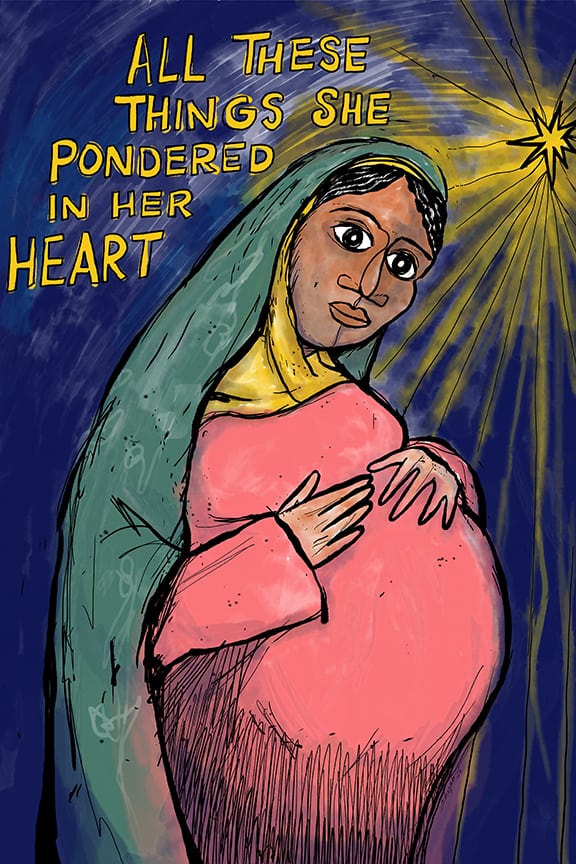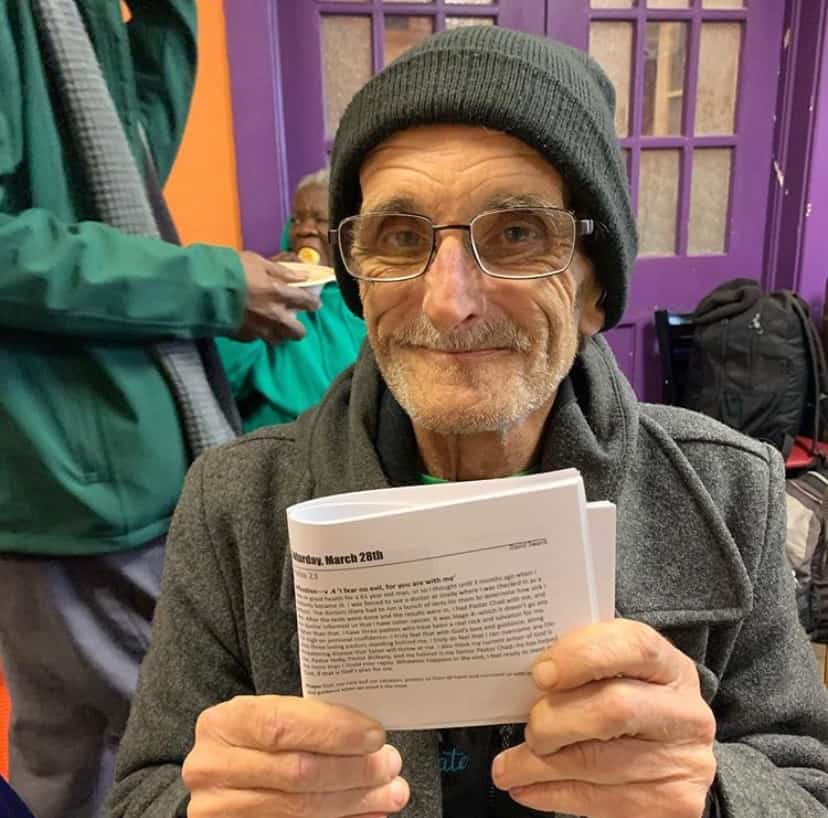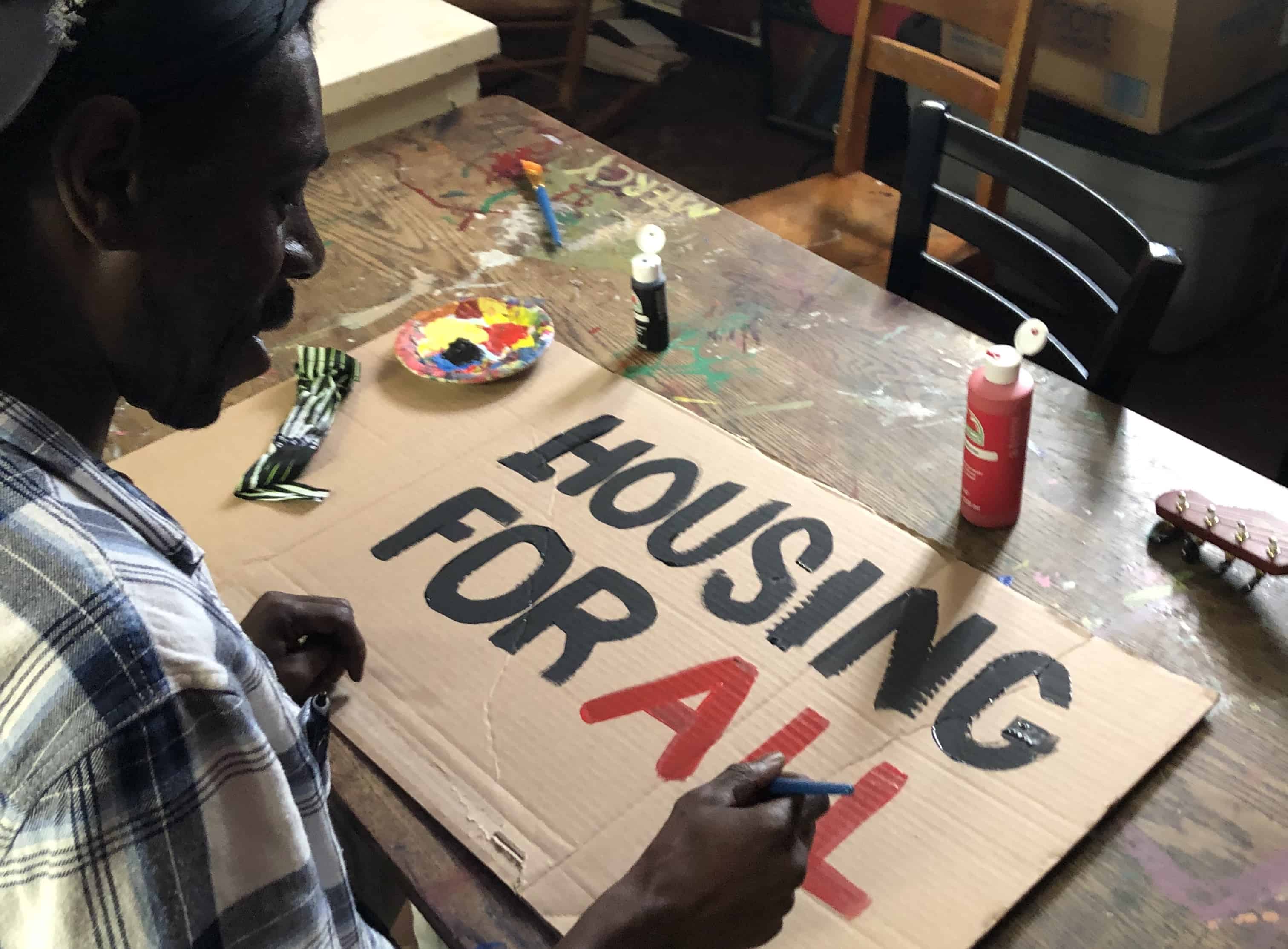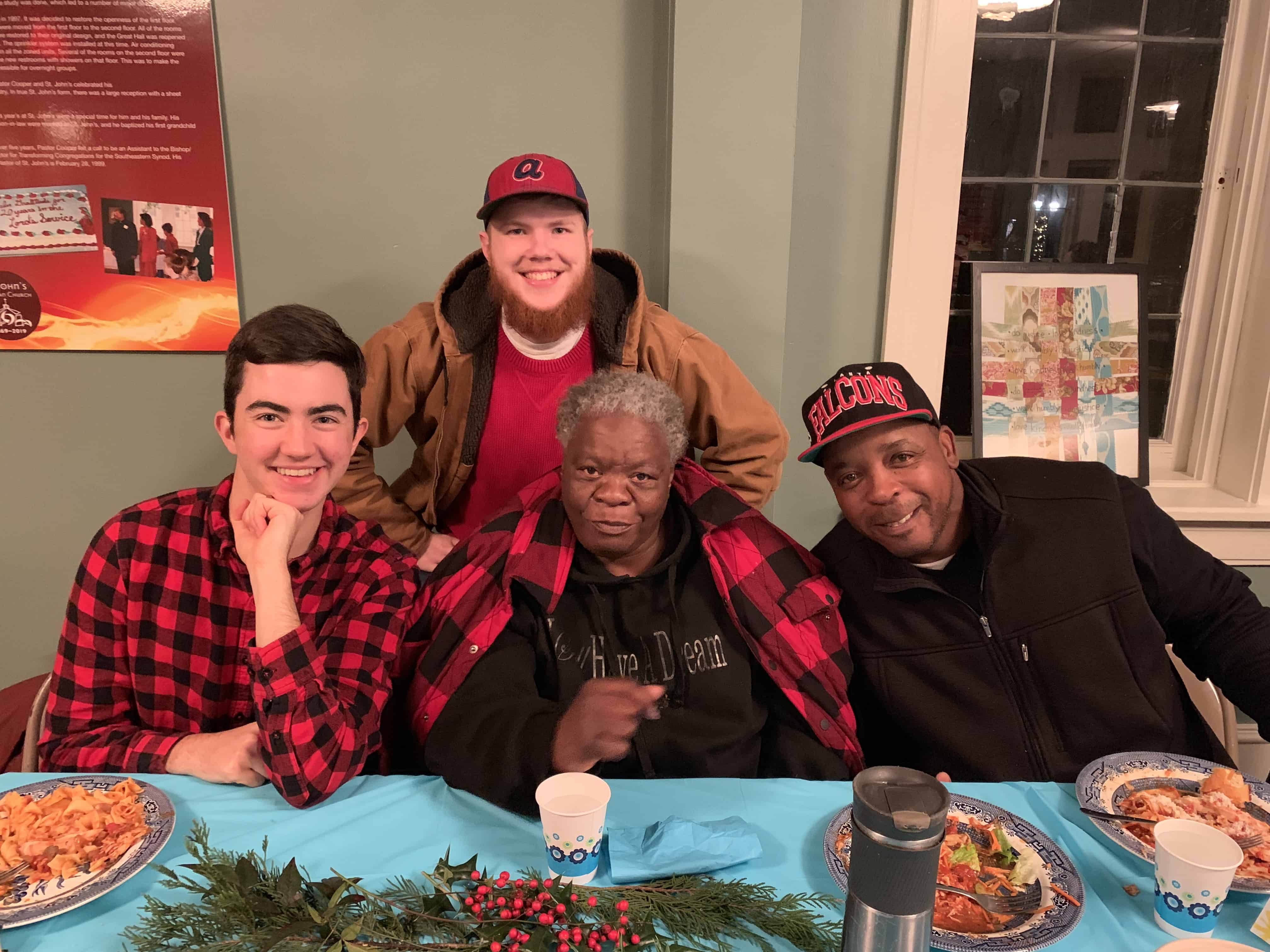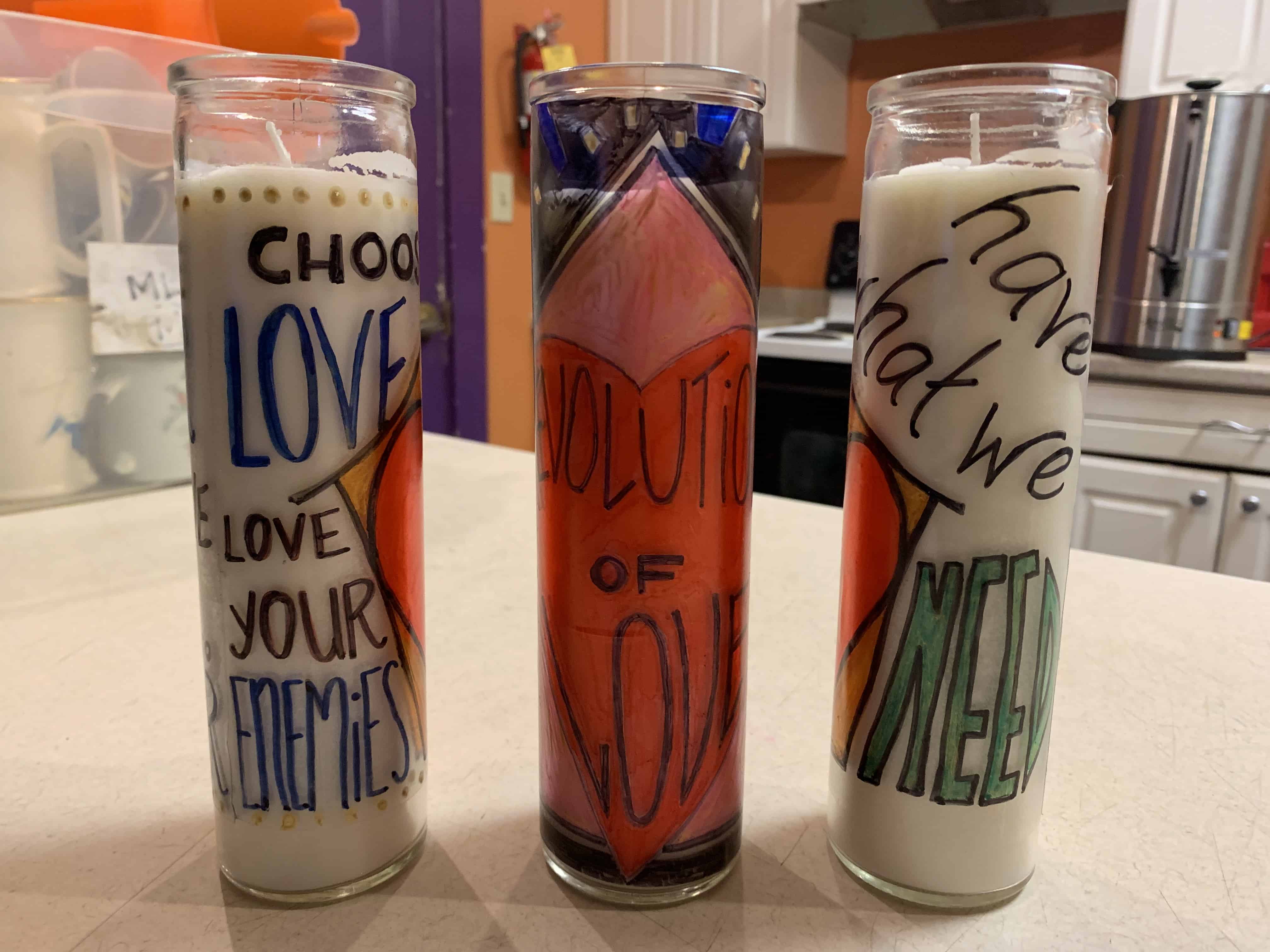Author: Chad Hyatt
Luke 2:1-20
Reflection: v. 19, ‘Mary treasured all these words and pondered them in her heart’
John Lennon famously said, ‘Whatever gets you through the night is alright.’ While I might put some limits on precisely ‘whatever’ might be, I can say this without hesitation: praying the rosary gets me through the night—and pretty much every time in between. It’s simple, really. Just the act of holding a rosary—fingering its worn beads, tracing its looping pattern as I pray—connects me to that deeper place in my heart where I know God makes a home with me. Rosary in hand, Hail Mary upon my lips, my distracted and worried mind slows down its harried gait just a little. It’s like the knotted cords of my rosary bind my heart to a deeper truth, the most profound truth of all—the grace of God’s love for me and for all the world.
The rosary is a truly contemplative prayer. Sure, it’s repetitious. But its repetitions aren’t vain. The words themselves are a beautiful gift of our Christian tradition. These well-worn prayers have been offered by the faithful across countless centuries and cultures. But the words become a mere after-thought as the prayerful heart moves closer to God’s heart. Praying the rosary stills my fears. It illumines my hope. It leads me to sit quietly in the presence of the living God.
Throughout the disruption of this pandemic, I’ve spent a lot of time with Our Lady of My Backyard. Sitting in a rocking chair I once recovered from the dumpster at our church, I situate myself near a little image of the Virgin Mary I purchased at the monastery. Praying the rosary is praying in the company of Mary. We contemplate her Son together. I let the long day start to roll off my shoulders, as gently I rock back and forth. I gaze up at the starry sky and sense the gentle rustle of the trees. I hear the cicada song, like a symphonic hymn of praise. Prayer should be as incarnational as the faith we confess. We are embodied, after all. We can only love God embodied. And that’s the way we love our neighbors, too. Let us rejoice this Christmas that God comes to us in Jesus, the Son of Mary—embodied, just like you and me.
Prayer Jesus, thank you for traditions of prayer that draw us closer to you.

